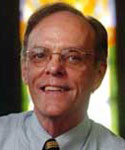A Methodist preacher named John Trembath presented a persistent leadership challenge for John Wesley. He became a Methodist preacher in 1743 and traveled with Wesley to Ireland in 1747. In 1755, Wesley wrote a stern letter in which he reminded Trembath of a time when he was "simple of heart and willing to spend and be spent for Christ." But across the past 12 years, Trembath had "suffered loss by being applauded." Wesley said his "natural vanity" was "harder to be checked" because of his "constitutional stubbornness."
Some things never change. Vanity -- an excessive sense of self-importance, and stubbornness -- and the inability to receive or respond to insight or critique from others continue to be a potent combination for the kind of problems that contaminate healthy leadership. In Trembath's case, it resulted in behaviors that Wesley said were inappropriate for a Methodist preacher. In no uncertain terms, Wesley challenged Trembath to "recover the life of God in your own soul and walk as Christ walked." We can feel the urgency in Wesley's words: "You must be much in the way or much out of the way, a good soldier for God or for the devil. O choose the better part! -- now!-- to-day!"
Five years later, Wesley again wrote to Trembath, "You cannot stand still; you know this is impossible. You must go forward or backward. Either you must recover that power and be a Christian altogether, or in a while you will have neither power nor form, inside nor outside."
This time Wesley diagnosed Trembath's problem as a lack of reading ("I scarce ever knew a preacher read so little ... Hence your talent in preaching does not increase") and a lack of "meditation and daily prayer." He warns, "You wrong yourself greatly by omitting this. You can never be a deep preacher without it any more than a thorough Christian."
Wesley's final challenge to Trembath is as true today as it was 250 years ago. "O begin! Fix some part of every day for private exercises. You may acquire the taste which you have not; what is tedious at first will afterwards be pleasant. Whether you like it or no, read and pray daily. It is for your life; there is no other way: else you will be a trifler all your days . . . Do justice to your own soul; give it time and means to grow. Do not starve yourself any longer. Take up your cross, and be a Christian altogether. Then will all the children of God rejoice (not grieve) over you."
I'm amazed by Wesley's patient persistence with John Trembath. The two letters cover 17 years in their relationship. Wesley never gave up on his co-worker. The letters demonstrate three ways in which Wesley invested himself attempting to improve Trembath's effectiveness.
First, Wesley was willing to tell the difficult truth. He named the specific ways in which Trembath was falling short of his expectations and listed the behaviors that were undermining his effectiveness. One of the most difficult challenges of leadership is naming the real issues that are undermining a co-worker’s effectiveness in a way that helps that person see their need for change.
Second, Wesley defined the practices that could help Trembath grow into the kind of leader Wesley believed he was capable of becoming. Critique of behavior can be destructive if it is not accompanied by clearly defined steps toward improvement.
Third, Wesley continued to inspire Trembath by reminding him of the power of the Spirit of God at work in his life. He did not settle for quick fixes that only touched the external behaviors that were impeding Trembath's ministry. He cared for his co-worker's soul. He went to the heart of Trembath's identity as a follower of Christ and challenged him to grow.
Sooner or later, every leader faces the kind of dilemma Wesley faced with Trembath. There are times when the only responsible decision is to end the relationship and release a coworker to find another place to serve. But Wesley demonstrated a patient persistence with Trembath that evidently resulted in Trembath being reclaimed for more effective ministry.
In 1782, Wesley wrote, "John Trembath is alive again."








